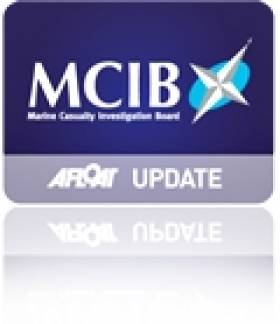Displaying items by tag: Pearse Lyne
MCIB Issues Report On Castletownbere Drowning
#MCIB - A poorly positioned lobster pot hauler and failure to maintain a working PFD have been identified among the main contributing factors in the death of a retired schoolteacher and recreational fisherman off West Cork two years ago.
That's according to the Marine Casualty Investigation Board's (MCIB) report on the incident off the Beara Peninsula on 17 August 2012, in which 66-year-old Pearse Lyne drowned after his fishing boat capsized.
As previously reported on Afloat.ie, Lyne's death was the second tragedy to befall the Castletownbere area in mid August 2012, occurring just days after farmer and poet John O'Leary drowned off Cod's Head.
The MCIB report established that Lyne had set out to sea on the morning of 17 August 2012 in a hurry to retrieve his lobster pots as that year's fishing season closed out.
Though Met Éireann's reports on the day's weather conditions were favourable, anecdotal evidence from local mariners at the time suggest a heavy swell in the area.
Investigators also found that Lyne's unregistered boat, while in sound working order, had its lobster pot hauler fitted on the starboard stern quarter, not in the usual forward position, which may have made affected the boat's stability – although it is unclear exactly what caused the capsize.
In addition, Lyne was found not to be wearing a lifejacket or PFD when his body was removed from the water, though there is evidence he was attempting to access one from the forward locker when he was overcome by the situation.
But even if he had, the PFD found on board his vessel was determined to be defective, with its gas cartridge already expended.
The report recommends that a Marine Notice be issued recommending all mariners inspect their PFDs for defects such as expired or expended gas inflation cylinders.
The complete MCIB report can be downloaded as a PDF below.































































